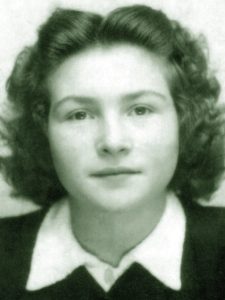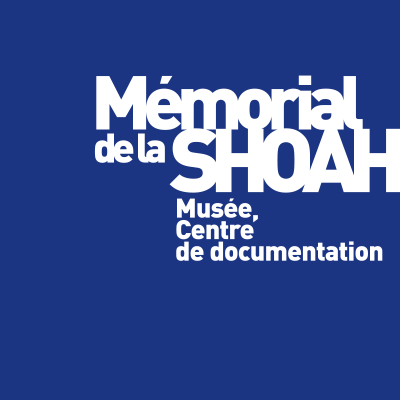 Sarah Montard née Lichtsztejn, a survivor of the Auschwitz-Birkenau camp, died on February 21, 2022.
Sarah Montard née Lichtsztejn, a survivor of the Auschwitz-Birkenau camp, died on February 21, 2022.
Sarah Montard was born on March 16, 1928 in the free city of Danzig and declared Polish. Her parents, Moses and Maria, born Korenbaum, married in 1927. They are secular and anarchist. The father is a journalist, the mother a seamstress. In October 1930, the family is in Paris and settled in 1932 in the 20e arrondissement.
Moïse is mobilized in 1939 in the detachment of the Polish Army in France.
Sarah is sent in January 1940 to a house of the Work of relief for children, on the French Riviera in Boulouris, where her mother comes to pick her up in July.
On 23 July 1941, his father was arrested in Paris and interned at the Pithiviers camp in Loiret, from where he managed to escape in early September 1941. He then enters clandestinity.
On July 15, 1942, a friend from the high school warns Sarah that a mass arrest is being prepared. But Sarah and her mother are arrested the next day by the French police. At 14 years old, Sarah’s childhood changes. Led to the Vél d'Hiv, they manage to escape from it on the same day. They in turn enter clandestinity. Sarah nevertheless continues her schooling at the high school for young girls of the Vincennes course in Paris.
On May 24, 1944, at 7 o'clock in the morning, two inspectors in civilian clothes come to arrest Sarah and her mother following a denunciation letter sent by a neighbor. Taken to the depot of the courthouse, they are interned the next day at the Drancy camp.
On May 30, 1944, Sarah and her mother are deported in convoy 75 to the Auschwitz camp Auschwitz, by convoy No. 75. They arrive on June 2nd on the ramp of Birkenau. They are assigned to the external Kommandos in which they carry out exhausting work. Separated from her mother at the end of October, Sarah is sent to the Auschwitz-I camp.
On January 18, 1945, the camp was evacuated. During the "death march" she finds her mother and they arrive together at the Bergen-Belsen camp. Sarah will notably cross paths with Anne Frank.
Released by the British army on 15 April 1945, they returned to Paris on 24 May 1945, exactly one year after their arrest. They find Moses who had been able to hide.
Sarah worked between 1952 and 1956 at the Reuters agency then directed the secretariat of a laboratory of fundamental research of the Muséum d'histoire naturelle. She joined the Amicale d'Auschwitz in 1946 and in 1979 the association of the sons and daughters of deported Jews from France, attending alongside Serge Klarsfeld at the Cologne trial in 1980. From 1985, Sarah will testify on numerous occasions, notably at the Shoah Memorial, and accompany dozens of study trips to Auschwitz.
Sarah Montard is made an officer of the Legion of Honor and a commander of the Palmes académiques.
Sarah Montard published her testimony in 2011 by Le Manuscrit editions in the collection Témoignages de la Shoah, with the support of the Foundation for the Memory of the Shoah: "Drive out the black butterflies. Story of a survivor of the Nazi death camps.”
The Shoah Memorial pays tribute to a great activist for memory and extends its condolences to her children and loved ones.

